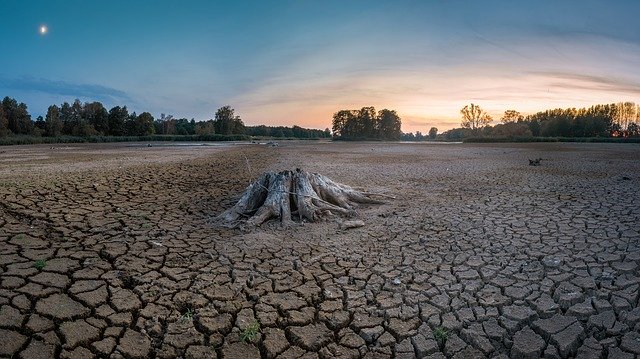For Agrarian Communities, Climate Change’s Effects Are Personal
IPR sociologist Julia Behrman examines how extreme weather affects marriage, births in Malawi
Get all our news
With the acceleration of climate change, and the changes in the intensity and frequency of these events, there's more attention paid to the ways these weather shocks have a truly far-reaching impact.”
Julia Behrman
Assistant Professor of Sociology and IPR Fellow

Climate change has implications for everything from immigration to agricultural policy, but its most immediate impact is on the daily lives of people experiencing its effects. In a recent working paper, IPR sociologist Julia Behrman has turned her attention to how extreme drought and rainfall affect major life decisions among women in Malawi.
“With the acceleration of climate change, and the changes in the intensity and frequency of these events, there's more attention paid to the ways these weather shocks have a truly far-reaching impact,” Behrman said.
While many think about how climate change affects people’s livelihoods, Behrman and her co-author, Liliana Andriano of the University of Oxford, go a step further in thinking about its influence on key transitions in young people's lives, like the age when they get married.
They did this by combining Malawi Demographic and Health Survey (DHS) data with the Standardised Precipitation Evapotranspiration Index, a cutting-edge measure of drought across the globe. They included health survey data on young adult women’s major life decisions, including first marriages and living together with a partner, first births inside and outside of marriage, and their decision to exchange sex for goods and cash.
Behrman and Andriano find that when women in Malawi experience drought, they marry and have children at younger ages. The researchers see these extreme weather phenomena as part of a complex decision-making system, and their study suggests they play a role in motivating women to marry and have children earlier, or to a lesser degree, exchange sex for money.
“If these [weather shocks] are becoming more regular and intense with climate change… with some of these trends we see toward lower ages for marriage, they could have implications at the population level,” Behrman said. “And that could be quite troubling, given that these ages are already quite low.” Women in Malawi marry and give birth for the first time between the ages of 18 and 19, on average.
Because Malawi is a matrilineal society, which is relatively rare in sub-Saharan Africa, Behrman was able to reliably locate women geographically and match them to the presence of weather shocks experienced in adolescence. In those areas that experience the most acute shocks, Behrman said that the overall quality of life for women can decrease significantly.
“Things become a lot harder during a drought, or some of these other extreme weather events,” Behrman said.
Behrman points to clear policy implications for her findings: In rural, agrarian communities, protection against the impact of drought on crop yields and prices is more important than ever.
“This could mean investing in an irrigation system, it could mean things like investing in weather insurance, that could help protect people, even if yields are affected,” Behrman said.
From a policy standpoint, these interventions could have important implications beyond just protecting crops and food supplies, she said. “They’re important for people in these communities’ life transitions that are happening at the same time.”
Image courtesy of Pixabay.
Published: February 28, 2020.


